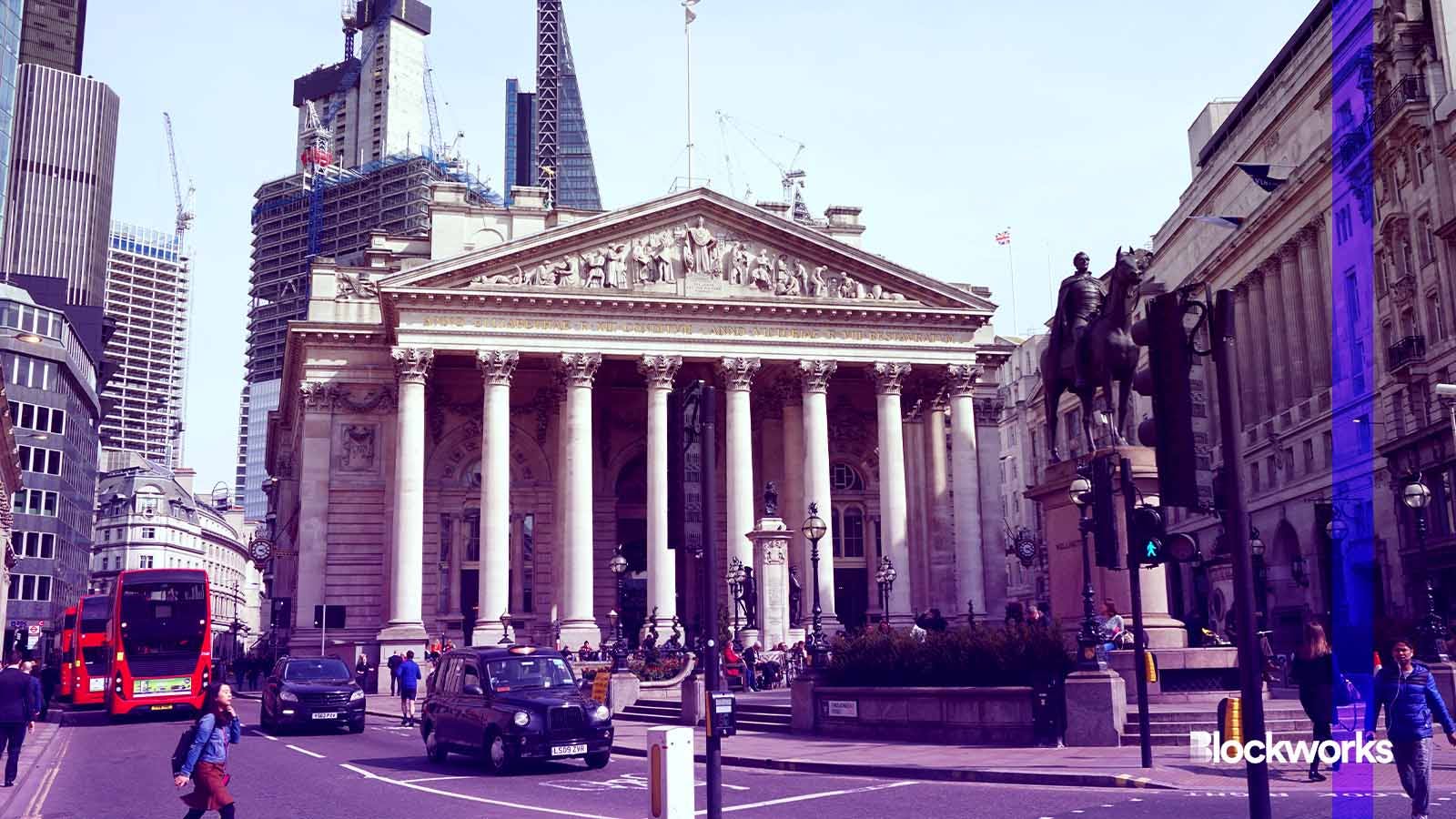UK still undecided on future of digital pound
In a recent report, the House of Commons Treasury Committee suggests careful consideration on CBDC decision, not haste

Aerial-motion/Shutterstock modified by Blockworks
As researchers forge ahead with looking into how a digital pound could work in the UK, lawmakers remain undecided on whether or not a central bank digital currency (CBDC) has a place in its future economic landscape.
In a recent report, the House of Commons Treasury Committee advised the Bank of England and HM Treasury to thoughtfully consider the introduction of a CBDC in the UK. It emphasized the importance of proceeding with caution and adopting a deliberate approach.
A digital pound specifically raises concerns about financial stability, committee members noted.
“One of the most commonly cited risks was that of ‘bank disintermediation’ — that is, the switching of deposits held with banks into digital pounds,” the report read. “In periods of financial market stress, the ability to rapidly and easily switch into digital pounds could accelerate the withdrawal of deposits from banks — a so-called ‘bank run’— and thereby increase the risk of bank failures.”
Further, an increase in transferring deposits into digital pounds could result in higher interest rates on bank lending, the economists noted.
Read more: Wholesale CBDCs and automatic market makers could be the perfect pair, BIS finds
Committee members were further influenced by how other countries appear to be thinking about a CBDC. The United States, the report noted, “is not pursuing the development of a CBDC with any urgency,” further pushing UK lawmakers to recommend a slower and more thoughtful approach.
“I am not convinced about some of the problems that we might be trying to solve,” Governor of the Bank of England Andrew Bailey said at the start of the year. “I am not necessarily convinced that the retail payment systems need this sort of upgrade at the moment.”
The Federal Reserve, while also taking steps to research the potential impacts and risks of a CBDC, seems similarly skeptical of how one would fit into the existing financial system.
“We would not support…accounts at the Federal Reserve by individuals,” Fed Chair Jermone Powell told Congress during a June 2023 hearing. “If we were to, and we’re a long way from this, support at some point in the future a CBDC, it would be one that we’re intermediating through the banking system and not directly at the Fed.”
The report and international comments coincide with ongoing opposition to a retail CBDC by US lawmakers. Earlier this Congressional session, Rep. Tom Emmer, R-Minn., reintroduced legislation to prohibit the Federal Reserve from issuing a CBDC directly to individuals.
“This bill puts a check on unelected bureaucrats and ensures the US digital currency policy upholds our American values of privacy, individual sovereignty, and free-market competitiveness,” Emmer wrote on X, formerly Twitter, in September, citing common criticisms of the digital dollar.
The UK report highlighted privacy, particularly with regard to government visibility into spending habits with a digital pound, as a primary concern. Nonetheless, committee members identified potential solutions to address these issues.
“The Bank of England and Treasury consultation paper states that the digital pound would not be anonymous because the ability to identify and verify users is needed to prevent financial crime,” the report said. “Payment Interface Providers — the private-sector firms that users would interact with directly to manage their digital pounds — would identify and verify users, but anonymise personal data before sharing with the Bank of England for recording on the digital pound’s ‘core ledger.’”
In a joint statement over the weekend, the Bank of England and the HM Treasury said that they would be responding to the committee’s report “shortly,” along with their joint consultation paper outlining next steps for the UK and a digital pound.
Get the news in your inbox. Explore Blockworks newsletters:
- The Breakdown: Decoding crypto and the markets. Daily.
- 0xResearch: Alpha in your inbox. Think like an analyst.






